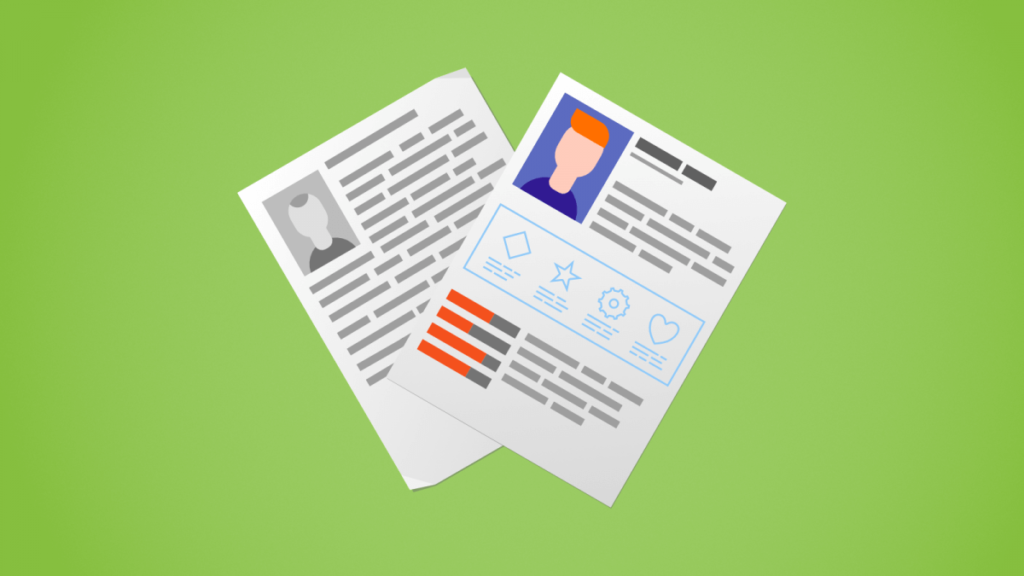So, you’re applying for a job, you found a position for which you’ve got the right skills, have relevant work experience, and have achievements under your name that make you a good fit.
Now, you just have to write a resume highlighting everything you have and wait for the interview call, right? Wrong! Chances are there are hundreds of others like you with the same level of skills, qualifications, and experience applying for the same job position. So, the question remains: how can you make your resume unique?
You need something that helps your resume stand out from the pile of resumes the recruiter got. Something that helps the recruiter know you in the first few seconds after reading your resume. Something like a resume headline! “What?” You might ask.
Well, this blog helps answer that. We’ll tell you what is a headline for a resume while explaining why you need one. Furthermore, we’ll even help you craft one yourself and offer some examples to help you inspire. Whether creating a new resume or updating an old one, boost it with a catchy headline.
What is a Resume Headline?
Before writing a resume headline, let’s explore what it is first. A resume headline is a short one-liner statement that offers a description of you as a professional. Think of it like how a newspaper headline captures the complete essence of the news story; the resume headline does the same.
The resume headline is placed at the top, and using one or two sentences, explain your experience, qualifications, and skills. Not to be confused with a resume summary, as it is shorter and more compact. A headline is a great way to introduce yourself to the recruiter. Through proper use, you can make it memorable for the recruiter, leading them to give your resume a more thorough look.
How Does a Resume Headline Help?

Some of you might wonder, “How’s a one-liner going to make a difference in my resume?” But that’s what it does. Using a proper headline correctly can benefit your resume in several ways. Here’s how it helps:
1. Gives You the Spotlight:
A headline allows the recruiter to learn who you are and why you’re an expert. It offers some selling points through which they can differentiate you from others.
2. Shows Your Experience:
If you’re a candidate who has dealt with a lot of stuff in the past, a simple headline can help summarize it. Two-page resumes can seem like a hassle for hiring managers to go through. However, headlines can help show your experience and why you prove a good fit.
3. Works like a Pitch:
Think of a headline as a selling pitch. In this case, you’re pitching your strengths to the recruiter to influence them. You can make yourself more memorable by using a strong headline.
4. Offers Clearance from the ATS:
Before your resume reaches the recruiter, it has to go through the Applicant Tracking System (ATS) the recruiter uses. The ATS scans your resume for relevant keywords associated with the job and weeds out those resumes that aren’t a good fit. You can integrate the right keywords in the resume headlines. This way, you could trigger the system to let your resume pass.
5. Makes Even an Entry-Level Applicant Look Professional:
Everyone has to start from somewhere. If you’re fresh and have no experience under your name, don’t let it stop you from writing a resume headline. Even though you might not have any work experience, using the headline correctly can show yourself as a professional.
Putting All the Puzzle Pieces for the Perfect Headline:

Now that you know what a headline is for a resume, it’s time for you to learn to make one yourself. Although a resume headline may sound intimidating, it’s pretty simple. Here are ten tips through which you can create the perfect resume headlines:
1. Keep it Short:
As we said before, a resume headline is a short statement. Keep it in mind before writing one. Headlines should be around one to sentences in length at best. Limit it to one phrase, if possible, to make it eye-catching.
2. Use a Title Case:
While writing a resume headline, write it like the title case followed in a news article. Rather than writing in lowercase, capitalize the first letter of every word of the headlines.
3. Avoid Clichés:
Don’t use clichés in your resume headlines. It may make it look and sound generic. Avoid words like “Highly skilled” or “Very Hardworking.” Use descriptive language that helps the recruiter know more about you.
4. Improve it with Keywords:
Before writing the headlines, carefully research your job description and company to pick out high-quality keywords that will surely let you pass through the ATS.
5. Include A Certification:
If a job requires certain certifications or licenses, including it in the resume headline is a good idea.
6. Use your Skills:
Every employer wants a skillful employee. And your resume headlines can be a great place to discuss your best skills.
7. Include an Achievement:
If you have a unique achievement, add it to the resume headline.
8. Don’t Just Settle for One:
Rather than creating a single resume headline and be done for the day, craft multiple headlines. And from them, choose the best one that fits the job requirements.
9. Keep it Above the Summary:
Always keep the headline at the top of your resume. The spot above the resume summary would do perfectly.
Some Headlines Examples for Inspiration:
Take a look at these resume headline examples:
- Project Manager with 15+ Years of Experience
- Copywriter with SEO Expertise to Boost Page Ranking
- Award-Winning Writer with Expertise in Fiction Storytelling
- Sanitation Manager with 2 Years of Experience in Hospitality Industry
Final Words
As we move to the end, let’s review what is a headline for a resume. A headline can be a great opener for your resume. This short statement introduces you to the recruiter and explains your professionalism. By using a proper headline, you make your resume stand out. By using the points offered, you can create a resume headline that will impact your resume and boost your chances of getting called in for an interview.
FAQs
What is a Good Headline for a Resume?
A good resume headline has the following traits:
● Short
● Memorable
● In-Title Case
● Keywords Integrated
What is the Difference Between a Resume Headline and a Summary?
A resume headline is a short statement introducing you as a professional to the recruiter. In comparison, a resume summary is longer and offers a more detailed look at work experience, qualifications, and skills.
How Long Should a Headline Be?
The ideal length of a resume headline should be around one to two sentences and not more than that.
Can I Use Catchy or Creative Headlines on My Resume?
Although there’s no rule against creative or catchy headlines, make sure to balance it with professionalism, as a resume is a formal document.

